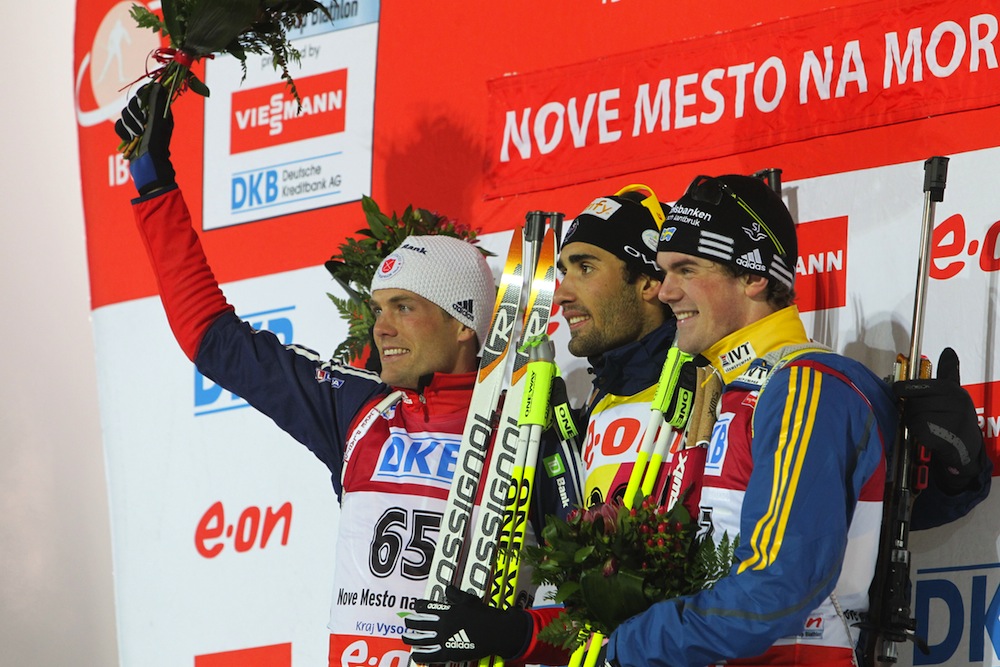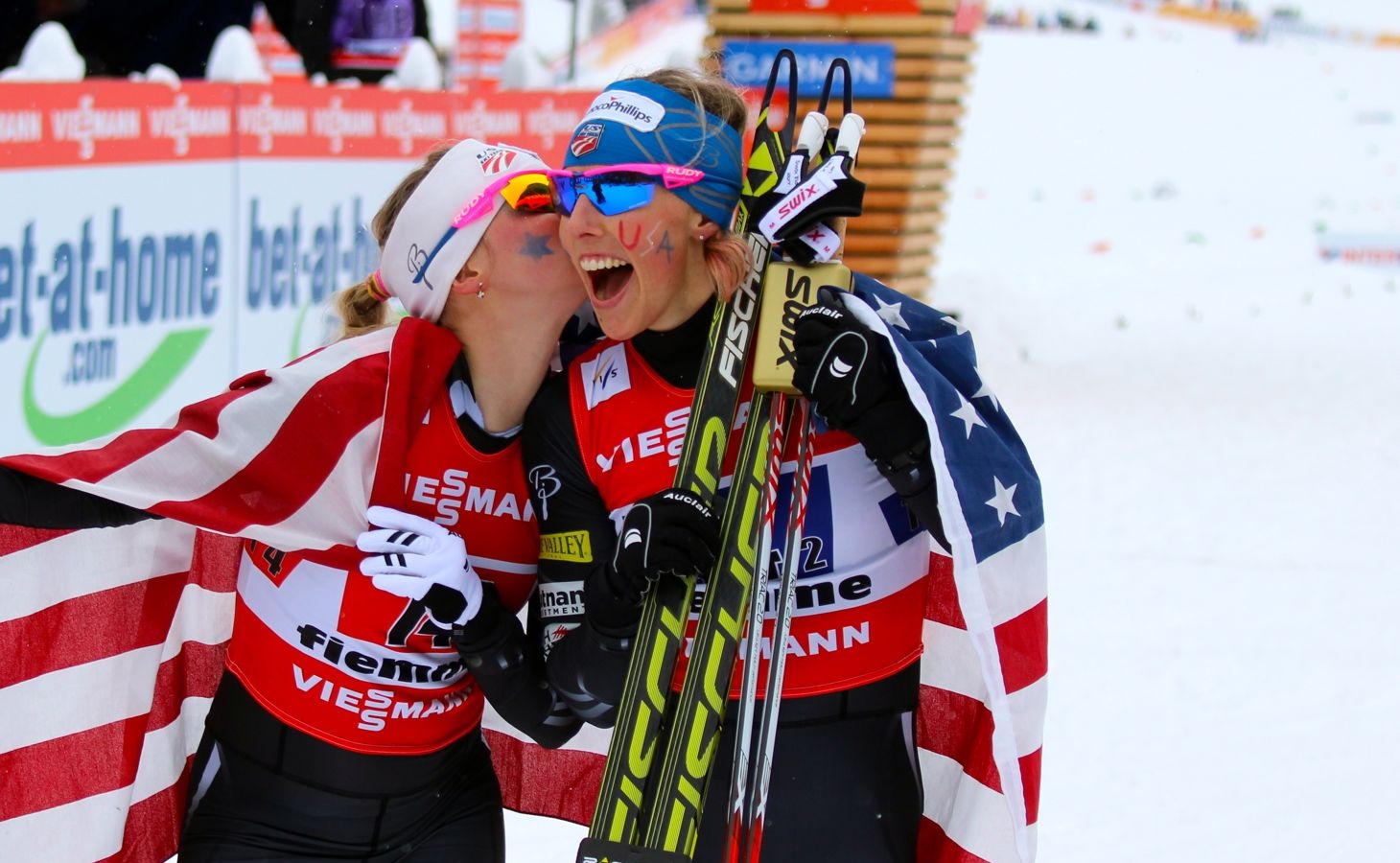
Editor’s note: The World Anti-Doping Agency (WADA) has its Executive Board and Foundation meetings in Colorado Springs on Tuesday and Wednesday. These are the most obvious times for the agency to determine any future and continuing action on the unfolding Russian doping scandal. As you can read in our editorial here, there are many questions which should be addressed coming from the nordic world, which was specifically mentioned in the report but not investigated.
Having competed internationally in biathlon for 15 years, Tim Burke was not completely surprised by the WADA Independent Commission report.
The 300+ page document found rampant doping in Russian track and field and incompetent anti-doping enforcement by RUSADA, the country’s anti-doping agency.
What surprised him was what came next.
“For me, what is a little bit of a shock is that I really expected to see a bigger outcry from the nordic community,” said Burke, who has seen many a doping scandal come and go. “Especially from other athletes. I have been really shocked to see what I take as pretty much silence from a lot of the athletes. I see everyone tweeting about their new sponsors, when they should be talking about fighting for clean athletes.”
And that gets to the reality of the scandal in the nordic world. While the WADA report leads to questions which are highly relevant to nordic sports – cross-country skiing, biathlon, and nordic combined – few people are publicly asking these questions. They seem wary of the balancing act required to call for action and investigation without antagonizing particular teams – or athletes they have gotten to know through a career of racing at the World Cup level.
That doesn’t make the questions any less important.
Yet few ski organizations are taking them on, at least not in a way that’s visible to outsiders. The International Ski Federation, has quietly taken appropriate action, like suspending a FIS Medical Committee member with ties to the scandal. But they never announced having done so.
The International Biathlon Union, meanwhile, has yet to release an official statement about the implications of the scandal, although representatives like President Anders Besseberg and Vice President for Medical Issues Jim Carrabre have responded individually to media interview requests.
“That’s just disappointing,” said Burke, who in 2013 became the first American to win a World Championships medal in more than 25 years, in terms of the IBU response. “I would have expected that after a report like that where biathlon was specifically mentioned, that the IBU would at least have a press release about it that they would look further into it.”
Burke clarified that he thought the IBU was doing a good job with its testing, calling them “the forefront of testing in endurance sport.”

Chris Grover, the head coach of the U.S. Ski Team, was more measured in his response. But he was certainly worried by what he saw in the report.
“People are concerned about it,” he said. “Athletes and coaches at the highest level of international skiing are very concerned… It definitely highlighted some things that we thought there was a chance might be happening. And it turns out that they probably are.”
He outlined the biggest fear and frustration brought up by the report: that although there are clues about doping in skiing, athletes still can’t be certain whether they are or are not competing against a clean field.
“For us in the USA in cross-country skiing, it’s really a big issue because we have a tradition of competing 100% clean,” Grover said. “We are competing clean now. We will be competing clean in the future. So when we know that there is some sort of cheating happening in the background, of course it is incredibly disheartening for everybody that’s involved, whether that’s the athletes, the staff, the coaches, the community, or the clubs.”
But he also highlighted the reasons that even if they are frustrated, athletes – both in the U.S. and internationally – don’t seem to be engaging with this issue on social media, for example.
“It’s a difficult balance for everybody involved,” Grover said. “Of course we don’t want to make any sort of accusations against any one nation, against any particular individuals, without some sort of concrete proof. So the WADA Independent Commission report comes out and raises important questions, but those questions need further investigation with regards to cross-country ski racing. There’s not yet proof.”
Burke agreed that athletes probably feared a backlash should they speak out about the report or Russia in particular.
But that didn’t bother him.
“I know personally, a lot of my fans and followers are Russian,” he said. “I definitely expect to have some backlash from that. But I really don’t care. I’d much rather have that and fight for clean sport.”
For both Burke and Grover, the biggest question was how often other athletes are getting tested outside of competition. Unannounced visits from doping control officers are the hallmark of a successful anti-doping program, and the WADA report showed that there are many ways around this at RUSADA.
“With USADA and WADA and what the FIS does, there’s an extremely good network for testing USA athletes,” Grover said. “The athletes from the U.S. are getting tested in all those places. At every camp. At their home, and then throughout the winter. We appreciate the fact that we’re tested often. But the question for me is, is that really happening around the world? Not only in Russia, but in every country that’s competing in cross-country skiing.”
Burke agreed.
“One of the biggest concerns for sure has to be the out-of-competition testing in Russia,” he said. “It sounds like, from that report, that it has been a joke. I’m curious to hear what kinds of solutions they are going to come up with for RUSADA.”
Both said that they were confident in the work their federations (the IBU for biathlon and FIS for skiing) were doing, but that given unequal testing in athletes’ home countries, there were still concerns.
And the sports may very well differ in the levels of doping. In biathlon, several Russians (as well as a Ukrainian and a Lithuanian) have been caught doping in the last few years.
In skiing, it has been a little while since the last Russian doping case- and even the others, like Austria’s Johannes Dürr, are far between.
“If I think back to 2010 and the years leading up to that, there were some Russian athletes who were getting busted for cheating on a pretty regular basis,” Grover said. “That has changed. Does that mean that they have cleaned up their program? Quite possibly. Either that, or there’s some sort of sophisticated level of cheating that is not being caught. But I don’t know the answer to that.”
And that’s one reason that he wanted to reassess levels of out-of-competition testing everywhere.
“We need to know if there are certain athletes who are eluding testing, or certain camp locations or times of the year where athletes are eluding testing,” Grover said. “The WADA Independent Commission report brings up some really poignant questions for cross-country specifically.”
While Burke urged athletes to speak up, Grover believed that one of the most effective ways to get WADA to follow up on these questions was through higher-level pressure and diplomacy.
“I think that the most effective way to do it is through the leadership of the U.S. Ski and Snowboard Association,” he explained. “It is definitely something that is on the radar screen of Luke Bodensteiner and Tiger Shaw, and something where they have been involved in the past. I think the most effective way is for them to continue to talk to the right people at the FIS who can then talk to the right people at WADA, to make sure that they are doing everything possible to make sure there is enough testing as is practical.”
Practical: not a word most people use to describe anti-doping efforts. But that doesn’t matter.
“Those testing programs cost a lot of money,” Grover conceded. “That’s a real challenge. FIS and WADA are already spending a lot of money on testing, and then you have a situation where not every national anti-doping agency across the world has the kind of resources that USADA has, for example… But it’s worth it. The money spent on ensuring that you have a clean sport is really critical because it builds fan trust that the sport is legitimate, that what you’re seeing is actually real.”
Going into the season, the U.S. teams are working hard not to let the specter of doping get to them.
Or for some, maybe it’s not so hard.
“It doesn’t really change anything for me,” Burke said. “Look, competing in biathlon, during my career, I can’t even remember how many doping cases I’ve seen. But there have been quite a few. The vast majority of them have been from Russia. At this point in my career it doesn’t really affect me. I’m just focusing on being my best.”
And Grover said that his team’s success in the past few seasons have proven that they should worry, but not much.
“What I’d say is the most comforting, is that I know, and the athletes on the U.S. Ski Team know, that on the right day if they are fully prepared they can go out and win a World Cup, or win a World Championship,” Grover said. “They have proven that they can do that. So the sport is close to, if not at, a level playing field in that if the athletes put it together on the right day they are going to go out there and win.
“That’s the most important thing to focus on,” he concluded. “We will always have a few outliers who are trying to game the system by doping. But I’d say that the great thing about cross-country skiing right now is that those folks, if there are any at the moment, are in the absolute minority.”
Chelsea Little
Chelsea Little is FasterSkier's Editor-At-Large. A former racer at Ford Sayre, Dartmouth College and the Craftsbury Green Racing Project, she is a PhD candidate in aquatic ecology in the @Altermatt_lab at Eawag, the Swiss Federal Institute of Aquatic Science and Technology in Zurich, Switzerland. You can follow her on twitter @ChelskiLittle.



